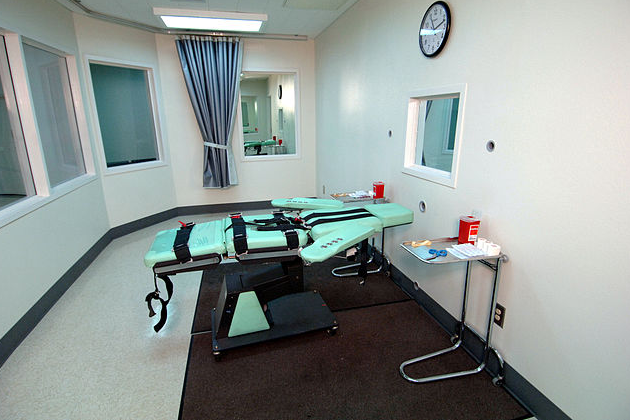
Texas Attorney General and GOP Gubernatorial Candidate Greg AbbottOffice of Attorney General Greg Abbott
Greg Abbott, the Republican attorney general of Texas, has many of the usual suspects funding his gubernatorial campaign: Energy tycoons, construction company magnates, leveraged buyout moguls, sports team owners. But one of his biggest backers hails from an industry not typically known for bankrolling political campaigns. J. Richard “Richie” Ray is the owner of a compounding pharmacy, one of those loosely regulated entities that have been mixing up lethal injection drug cocktails for prisons as these pharmaceuticals have become harder and harder to obtain. According to a new report from the nonprofit Texans for Public Justice, Ray, the owner of Richie’s Specialty Pharmacy in Conroe, Texas, has given Abbott $350,000 to help him defeat democratic challenger Wendy Davis.
Ray’s big investment in Abbott comes as death row inmates and good-government groups are trying to force Texas to disclose the supplier of its lethal injection drugs, thought to be a compounding pharmacy. The pharmacies themselves are under fire for selling tainted and mislabled medicine that has killed dozens of people in recent years. During Abbott’s tenure as AG, he has already taken on one Texas compounder, ApotheCure, after three people in Oregon died after taking painkillers from the pharmacy that were eight times more potent than the label indicated. (In 2012, Abbott settled state civil charges against the company.) Last summer, tainted medicine from an Austin compounding pharmacy caused blood infections in 17 people; two deaths are suspected to be related to the products, which are still under investigation.
Abbott is also in the middle of a pitched legal battle over whether the state has to identify the supplier of its lethal injection drugs. Over the past several years, international pharma companies have started refusing to sell execution drugs, including pentobarbital, to US prisons for use in lethal injections, and the EU has banned their export. This has left state prisons desperate to find replacement drugs to continue moving the machinery of death. After several states were caught illegally importing the drugs from abroad, state officials have tried obtaining their execution drugs from compounding pharmacies, which can legally mix them up but that have been plagued with problems like those in Texas. Defense lawyers have argued that their condemned clients have a right to know what they’re going to be injected with to ensure that the executions will not violate the Eighth Amendment ban on cruel and unusual punishment, and they’ve cited the well-documented problems with drugs produced by compounders in their challenges. The botched execution of Clayton Lockett in Oklahoma only reinforced those claims.
In October, in response to a formal request under the state’s open-records law, staff who handle such requests in the AG’s office said Texas law required disclosure of the execution drug supplier, a move that resulted in the exposure of Woodlands Compounding Pharmacy as the state’s lethal injection supplier. Woodlands promptly quit supplying execution drugs. As a result, the state is now fighting disclosure of the name of its new supplier, and Abbott is caught in the middle, with his lawyers arguing in state and federal court that the name of the pharmacy doesn’t have to be disclosed, even as his open-records staff say it does.
In the midst of all this controversy, Richie Ray has become a major donor Abbott’s campaign. He gave $100,000 in June 2013, just before the state bought several doses of compounded pentobarbital from a compounding pharmacy. (By comparison, Ray has given only a little more than $40,000 to Rick Perry’s campaigns.) Ray’s pharmacy is not supplying execution drugs to the state, according to the Texans for Public Justice report, apparently because his pharmacy isn’t certified as a “sterile” facility. However, Richie’s is a member of the Professional Compounding Centers of America (PCCA), a Houston-based national trade group that not only owns the lab that tested some of the state’s compounded execution drugs for purity but also sold Woodlans the raw materials to make one of the drugs.
Ray himself is active in fighting tougher regulation of compounding pharmacies. He’s the director of the Texas Pharmacy Association PAC and chairman of the International Academy of Compounding Pharmacists’ federal PAC. His employees are the top donors to the campaign of Sen. John Barasso (R-WY), a doctor and the Senate’s leading defender of compounding pharmacies like ApotheCure.
Given the massive conflicts between his current job and one of his biggest campaign contributors, Abbott can only hope that defense lawyers manage to drag out the legal battles over lethal injection long enough for him to get elected in November.

















